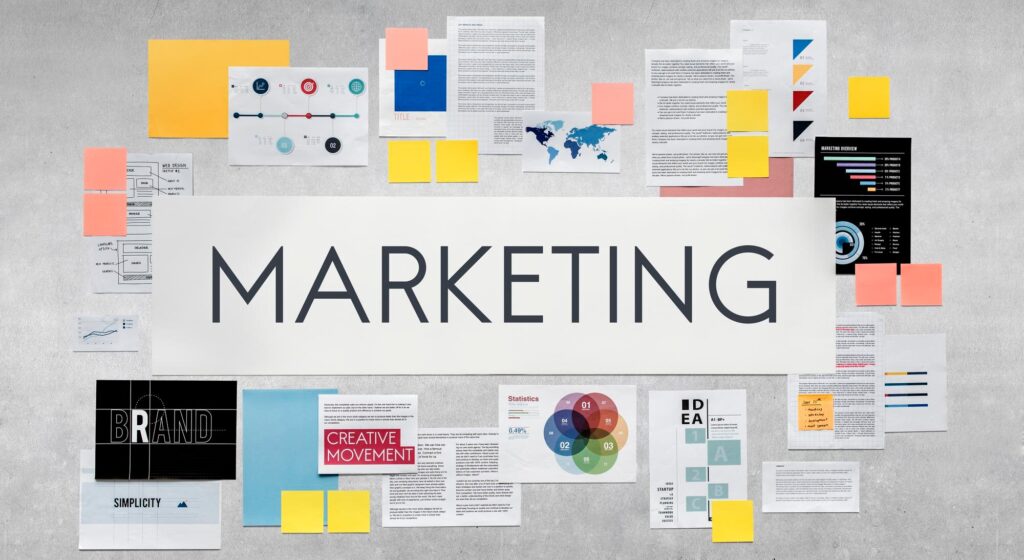
Keeping up with the competition in today’s fast-paced digital environment is no longer possible with traditional marketing strategies. Enter digital marketing, a dynamic and versatile approach that harnesses the power of digital channels and technologies to reach and engage with audiences like never before. From search engine optimisation (SEO) to social media marketing, email campaigns, and beyond, digital marketing offers businesses a myriad of opportunities to connect with customers, drive sales, and build brand loyalty. In this comprehensive guide from medsantrading , we’ll explore the essentials of digital marketing and how businesses can leverage its potential to thrive in the digital age.
Understanding digital marketing
An important component of digital marketing is all marketing activities conducted using digital channels, including websites, social media, search engines, email, and mobile applications. Unlike traditional marketing, which relies on physical media and offline channels, digital marketing leverages technology to deliver targeted messages to specific audiences, track performance metrics in real-time, and optimise strategies for maximum impact.
Key components of digital marketing
Several strategies and tactics are employed in digital marketing, each serving a different purpose and achieving a different goal. Some key components of digital marketing include:
- Search Engine Optimisation (SEO): SEO focuses on optimising websites to improve their visibility in search engine results pages (SERPs). By optimising website content, meta tags, and technical elements, businesses can increase organic traffic and improve their rankings on search engines like Google.
- Social Media Marketing: Social media platforms such as Facebook, Instagram, Twitter, LinkedIn, and YouTube offer businesses powerful tools to connect with their target audience, build brand awareness, and drive engagement through organic and paid strategies.
- Email Marketing: Email marketing remains one of the most effective digital marketing channels for nurturing leads, promoting products or services, and maintaining customer relationships. Personalised and targeted email campaigns can drive conversions and generate repeat business.
- Pay-Per-Click (PPC) Advertising: PPC advertising, such as Google Ads and Facebook Ads, allows businesses to bid on keywords and display ads to users based on their search queries, interests, demographics, and behavior. PPC campaigns can drive targeted traffic to websites and generate leads or sales.
- Content Marketing: Content marketing involves creating and distributing valuable, relevant, and engaging content to attract and retain customers. Content formats include blog posts, articles, videos, infographics, podcasts, and more, designed to educate, entertain, and inspire audiences.
Benefits of Digital Marketing
Compared to traditional marketing methods, digital marketing offers businesses numerous advantages:
- Cost-effectiveness: Digital marketing often requires lower upfront costs compared to traditional marketing channels, making it accessible to businesses of all sizes.
- Targeted Reach: Digital marketing allows businesses to target specific demographics, interests, and behaviours with precision, ensuring that marketing messages reach the right audience at the right time.
- Measurable Results: Unlike traditional marketing, which can be challenging to track and measure, digital marketing provides robust analytics and reporting tools that allow businesses to monitor performance metrics in real-time and optimise strategies accordingly.
- Global Reach: With the internet breaking down geographical barriers, digital marketing enables businesses to reach audiences around the globe, expanding their market reach and potential customer base.
Conclusion
As a result of digital marketing, businesses can now connect more deeply with their customers and advertise their products or services more effectively. By leveraging the power of digital channels and technologies, businesses can reach audiences with targeted messages, drive engagement, and achieve marketing objectives with unprecedented precision and effectiveness. Digital marketing is an essential component of a business’s strategy in today’s digital-centric world as technology continues to evolve and consumer behavior changes.
